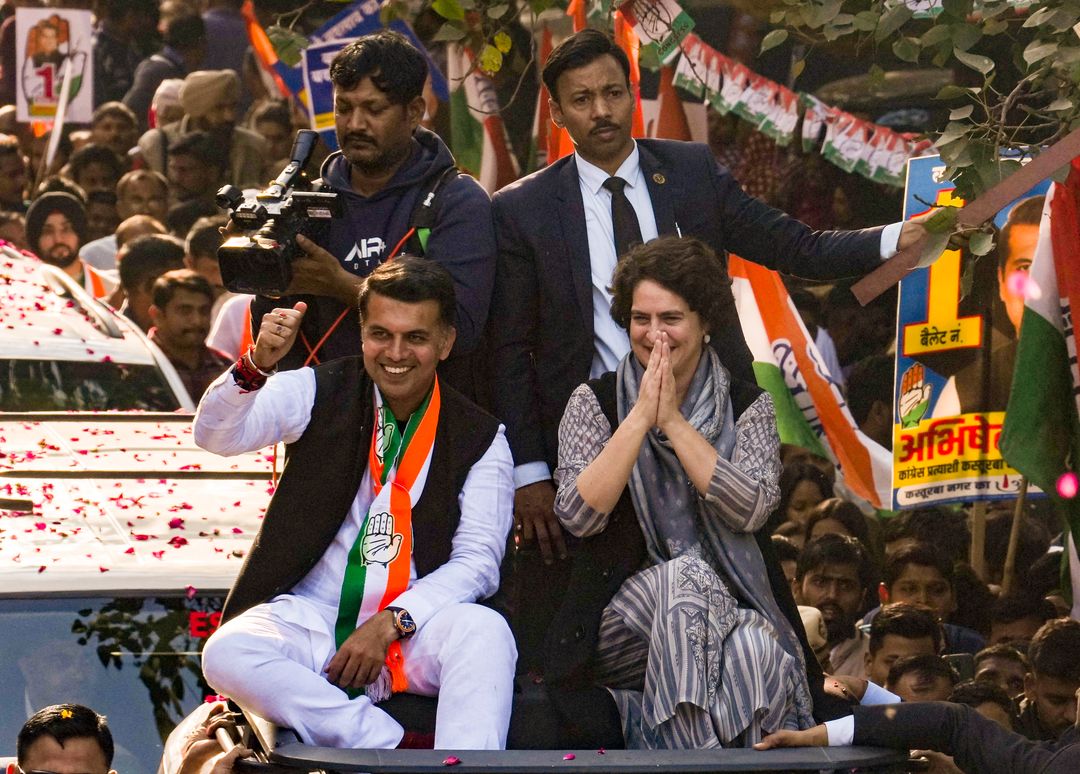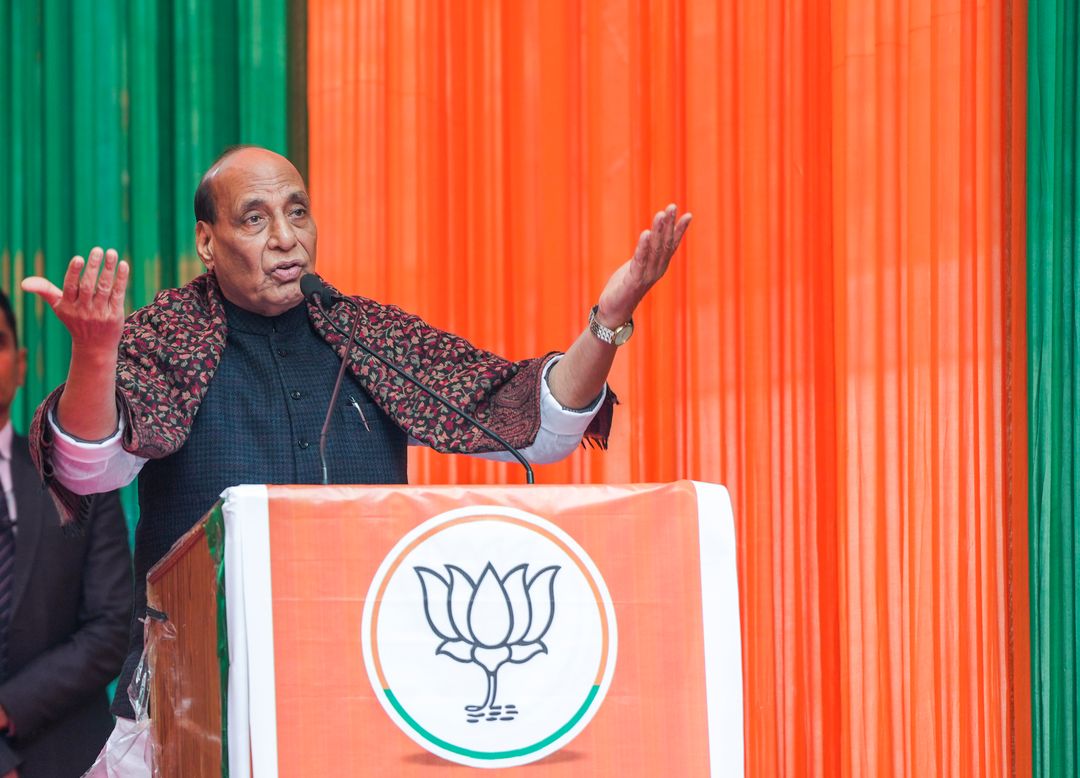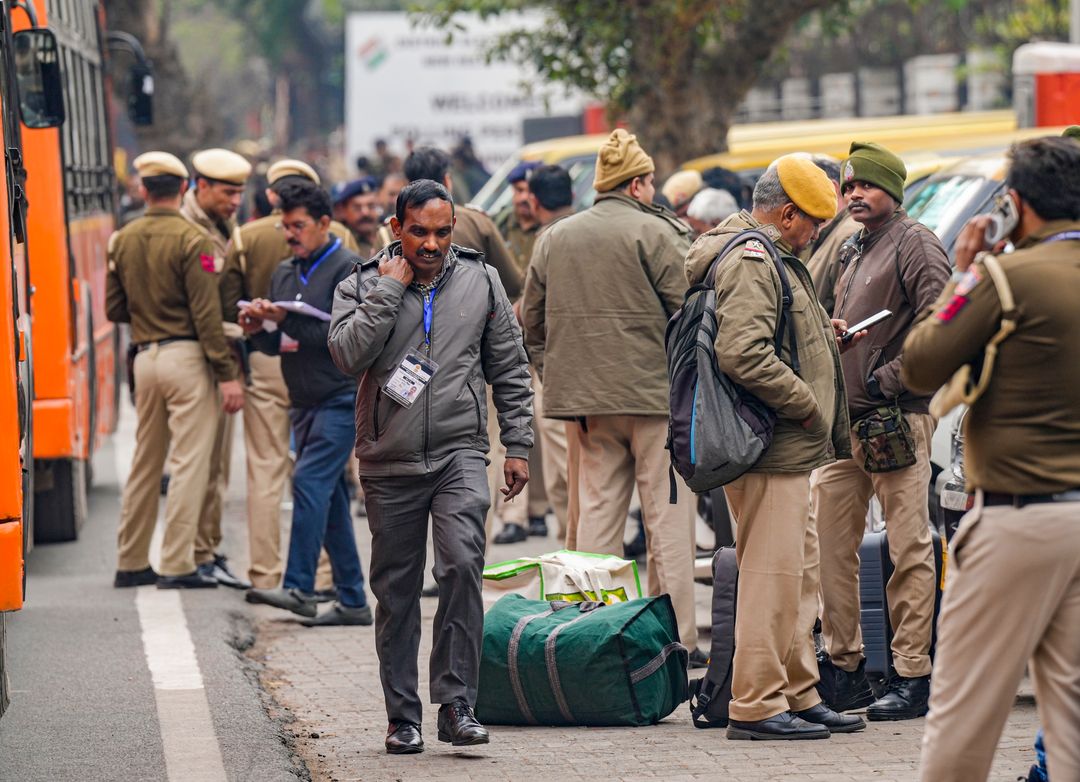New Delhi, Feb 3 (PTI) – The high-energy campaigning for the Delhi Assembly elections is set to end at 5 pm on Monday, marking the beginning of the mandatory silence period ahead of the voting scheduled for February 5.
On the last day of campaigning, the Bharatiya Janata Party (BJP) is pulling out all the stops, organizing 22 roadshows and rallies throughout the city in a bid to reclaim power in the capital for the first time in over 25 years. Meanwhile, the ruling Aam Aadmi Party (AAP) remains confident of securing a third consecutive term, emphasizing its governance model and the promise of free welfare schemes.
The Congress, which dominated Delhi politics for 15 years until 2013, is making a determined push to regain lost ground after being shut out in the last two elections.
The race for the capital has seen an escalation in political tactics, with unprecedented use of AI-generated spoofs, sharp political jabs, and high-decibel rallies dominating the scene. The battle has become a war of words, marked by catchy slogans and cutting remarks.
In line with the Election Commission's Model Code of Conduct (MCC), all public meetings, election-related functions, and campaigning must cease 48 hours before the close of polling, which is set for February 5. The MCC also prohibits the dissemination of campaign material through cinema, TV, and print media during this period.
The verbal sparring between parties has been relentless. AAP has dubbed the BJP as the "Bharatiya Jhootha Party" (Indian Liar Party) and "Gali Galouch Party" (Abusive Party), while Prime Minister Narendra Modi countered by calling AAP the "AAP-Daa" (disaster) and its chief Arvind Kejriwal the "Ghoshna Mantri" (Minister of Announcements). The Congress has called Kejriwal "Farziwal" (Fake) and a "Chhota Recharge" (Small Recharge) of Modi.
This election cycle has been notably shaped by digital campaigns and AI-generated memes, setting a new standard in political communication.
According to data from the Delhi Chief Electoral Officer (CEO), 1.56 crore voters are eligible to vote at 13,766 polling stations on February 5. This includes 83.76 lakh men, 72.36 lakh women, and 1,267 third-gender voters. In an effort to enhance accessibility, 733 polling stations have been designated for persons with disabilities.
For the first time, the Election Commission has introduced a Queue Management System (QMS) app, allowing voters to track real-time crowd levels at polling stations through the Delhi Election - 2025 QMS app.
Additionally, the home voting facility for senior citizens and persons with disabilities, which began on January 24, will continue until February 4. Of the 7,553 eligible voters, 6,980 have already cast their ballots.
To ensure the safety and integrity of the elections, a robust security deployment will be in place, including 220 companies of paramilitary forces, 19,000 home guards, and 35,626 Delhi Police personnel. The election commission has also prepared 21,584 ballot units, 20,692 control units, and 18,943 VVPATs, including provisions for dummy and Braille ballot papers.
The AAP, which won 67 of the 70 seats in 2015 and 62 seats in 2020, will be facing a resurgent BJP eager to break its dominance. The Congress, seeking a revival, also has its sights set on a comeback.
The outcome of this fiercely contested election will be revealed on February 8, determining whether the political rhetoric has resonated with voters or if Delhi’s political landscape will remain unchanged. With a tense race between AAP, BJP, and Congress, all eyes will be on the final verdict.
On the last day of campaigning, the Bharatiya Janata Party (BJP) is pulling out all the stops, organizing 22 roadshows and rallies throughout the city in a bid to reclaim power in the capital for the first time in over 25 years. Meanwhile, the ruling Aam Aadmi Party (AAP) remains confident of securing a third consecutive term, emphasizing its governance model and the promise of free welfare schemes.
The Congress, which dominated Delhi politics for 15 years until 2013, is making a determined push to regain lost ground after being shut out in the last two elections.
The race for the capital has seen an escalation in political tactics, with unprecedented use of AI-generated spoofs, sharp political jabs, and high-decibel rallies dominating the scene. The battle has become a war of words, marked by catchy slogans and cutting remarks.
In line with the Election Commission's Model Code of Conduct (MCC), all public meetings, election-related functions, and campaigning must cease 48 hours before the close of polling, which is set for February 5. The MCC also prohibits the dissemination of campaign material through cinema, TV, and print media during this period.
The verbal sparring between parties has been relentless. AAP has dubbed the BJP as the "Bharatiya Jhootha Party" (Indian Liar Party) and "Gali Galouch Party" (Abusive Party), while Prime Minister Narendra Modi countered by calling AAP the "AAP-Daa" (disaster) and its chief Arvind Kejriwal the "Ghoshna Mantri" (Minister of Announcements). The Congress has called Kejriwal "Farziwal" (Fake) and a "Chhota Recharge" (Small Recharge) of Modi.
This election cycle has been notably shaped by digital campaigns and AI-generated memes, setting a new standard in political communication.
According to data from the Delhi Chief Electoral Officer (CEO), 1.56 crore voters are eligible to vote at 13,766 polling stations on February 5. This includes 83.76 lakh men, 72.36 lakh women, and 1,267 third-gender voters. In an effort to enhance accessibility, 733 polling stations have been designated for persons with disabilities.
For the first time, the Election Commission has introduced a Queue Management System (QMS) app, allowing voters to track real-time crowd levels at polling stations through the Delhi Election - 2025 QMS app.
Additionally, the home voting facility for senior citizens and persons with disabilities, which began on January 24, will continue until February 4. Of the 7,553 eligible voters, 6,980 have already cast their ballots.
To ensure the safety and integrity of the elections, a robust security deployment will be in place, including 220 companies of paramilitary forces, 19,000 home guards, and 35,626 Delhi Police personnel. The election commission has also prepared 21,584 ballot units, 20,692 control units, and 18,943 VVPATs, including provisions for dummy and Braille ballot papers.
The AAP, which won 67 of the 70 seats in 2015 and 62 seats in 2020, will be facing a resurgent BJP eager to break its dominance. The Congress, seeking a revival, also has its sights set on a comeback.
The outcome of this fiercely contested election will be revealed on February 8, determining whether the political rhetoric has resonated with voters or if Delhi’s political landscape will remain unchanged. With a tense race between AAP, BJP, and Congress, all eyes will be on the final verdict.




